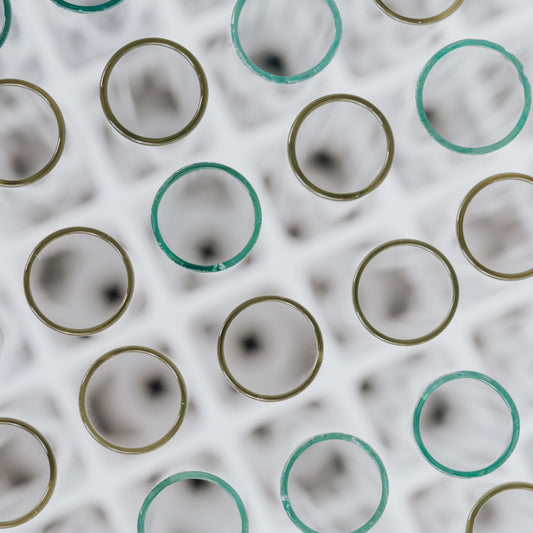pH is a scale that describes how acidic or alkaline something is, including components of your skin barrier.
Did you know that pH is a critical parameter for healthy skin?
- Most recent scientific studies report that the optimal skin pH is between 4 and 5.
- The enzymes that produce important building blocks for your skin, like ceramides and lipids, slow down or stop working outside of this pH range.
- Acidic (lower pH) conditions support natural skin flora (healthy bacteria), while alkaline conditions (higher pH) favour harmful microbes like Propionibacterium acnes.
- Most active ingredients in skincare products only work within a certain pH range.
Considering all of the above, shifting the pH of your skin can lead to a cycle that disrupts your skin barrier and leaves you vulnerable to sensitivity, damage and infection.
Tips for supporting healthy skin pH
- If you have hard water in your home, consider using micellar water for cleansing.
- Use a slightly acidic cleanser (pH 5 or below) or use an oil-based* cleanser (like our Double Cleanser!).
- Make sure your serums and lotions are on the acidic side, but still in the pH range that allows their active ingredients to be beneficial. For example, our Green Tea Gel Cream is formulated with a pH range of 4-5, which will help maintain healthy skin pH while allowing powerhouse active ingredients like Vitamin C and Niacinamide to improve appearance and vitality.
- Although certain brands recommend this, never mix multiple products into a single skincare “cocktail”, as this can change the overall pH and deactivate ingredients!
- If you do need to use multiple products with different pHs, wait at least 15 minutes between layers.
How much attention do you pay to the pH of your skincare products?
*Products that are 100% oil-based (no water-based ingredients at all) do not have a pH. The term pH refers to the concentration of hydronium ions (the “H” part of H2O) in an aqueous solution, so it does not apply to oils, which have a different molecular composition.



